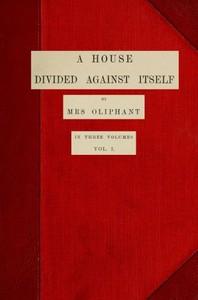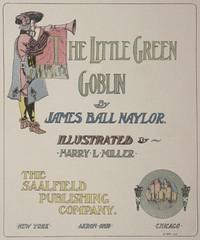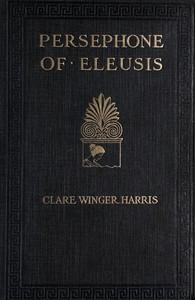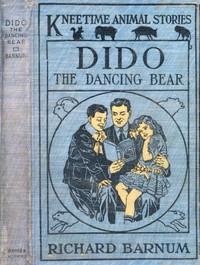Read this ebook for free! No credit card needed, absolutely nothing to pay.
Words: 136956 in 35 pages
This is an ebook sharing website. You can read the uploaded ebooks for free here. No credit cards needed, nothing to pay. If you want to own a digital copy of the ebook, or want to read offline with your favorite ebook-reader, then you can choose to buy and download the ebook.
ings as taste, learning, and the indefinable moral and personal elements which combine to form a scholar and a gentleman. He was a commonplace man in every other respect than this, that he most sincerely despised and detested flattery, and was incapable of being deceived by it. He had not failed to understand that it would have been as impossible to James Ashurst to flatter as to rob him; and for this reason, as well as for the superiority he had so fully recognised, he had felt warm and abiding friendship for him, and lamented his death, as he had not mourned any accident of mortality since the day which had seen his pretty young wife laid in her early grave. Mr. Creswell, a poor man in those days, struggling manfully very far down on the ladder, which he had since climbed with the ease which not unfrequently attends effort, when something has happened to decrease the value of success, had loved his pretty, uneducated, merry little wife very much, and had felt for a while after she died, that he was not sure whether anything was worth working or striving for. But his constitutional activity of mind and body had got the better of that sort of feeling, and he had worked and striven to remarkably good purpose; but he had never asked another woman to share his fortunes.
This was not altogether occasioned by lingering regret for his pretty Jenny. He was not of a sentimental turn of mind, and he might even have been brought to acknowledge, reluctantly, that his wife would probably have been much out of place in the fine house, and at the head of the luxurious establishment which his wealth had formed. She was humbly born, like himself, had not been ambitious, except of love and happiness, and had had no better education than enabled her to read and write, not so perfectly as to foster in her a taste for either occupation. If Mr. Creswell had a sorrowful remembrance of her sometimes, it died away with the reflection that she had been happy while she lived, and would not have been so happy now. His continued bachelor estate was occasioned rather by his close and engrossing attention to the interests of his business, and, perhaps, also to the narrow social circle in which he lived. Pretty, uneducated, simple young country women will retain their power of pleasing men who have acquired education, and made money, and so elevated themselves far above their original station; but the influence of education and wealth upon the tastes of men of this sort is inimical to the chances of the young women of the classes in society among which they habitually find their associates. The women of the "well-to-do" world are unattractive to those men, who have not been born in it. Such men either retain the predilections of their youth for women like those whose girlhood they remember, or cherish ambitious aspirations towards the inimitable, not to be borrowed or imported, refinement of the women of social spheres far above them.
The former was Mr. Creswell's case, in as far as anything except business can be said to have been active in his affairs. The "ladies" in the Helmingham district were utterly uninteresting to him, and he had made that fact so evident long ago that they had accepted it; of course regarding him as an "oddity," and much to be pitied; and since his nieces had taken up their abode, on the death of their father, Mr. Creswell's only brother, at Woolgreaves, a matrimonial development in Mr. Creswell's career had been regarded as an impossibility. The owner of Woolgreaves was voted by general feminine consent "a dear old thing," and a very good neighbour, and the ladies only hoped he might not have trouble before him with "that pickle, young Tom," and were glad to think no poor woman had been induced to put herself in for such a life as that of Tom's step-mother would have been.
On this point the brother of the "departed saint," as the widow called the amiable idler of whose presence she considered the world unworthy, by no means agreed with her. Mr. Creswell was of opinion that so long as trouble kept clear of Tom, Tom would have been perfectly indifferent as to where it lighted. But he did not say so. He had not much respect for his sister-in-law's intellect, but he pitied her, and he was not only generous to her distress, but also merciful to her weakness. He offered her a home at Woolgreaves, and it was arranged that she should "try" to go there, after a while. But she never tried, and she never went; she "did not see the good of" anything; and in six months after Tom Creswell's death his daughters were settled at Woolgreaves, and it is doubtful whether the state of orphanhood was ever in any case a more tempered, modified misfortune than in theirs.
Thus the family party at the handsome house, which Mrs. Ashurst and her daughter were about to visit, was composed of Mr. Creswell, his son Tom, a specimen of the schoolboy class, of whom this history has already afforded a glimpse, and the Misses Creswell, the Maude and Gertrude of whom Marian had, in her grief, spoken in terms of sharp and contemptuous disparagement which, though not entirely censurable, judged from her point of view, were certainly not altogether deserved.
Mr. Creswell earnestly desired to befriend the visitor and her daughter. Gertrude Creswell thought it would be very "nice" to be "great friends" with that clever Miss Ashurst, and had, with all the impulsiveness of generous girlhood, exulted in the idea of being, in her turn, able to extend kindness to people in need of it, even as she and her sister had been. But Maude, who, though her actual experience of life had been identical with her sister's, had more natural intuition and caution, checked the enthusiasm with which Gertrude drew this picture.
It was probably this little incident which lent the slight touch of coldness and restraint to the manner of Gertrude Creswell which Marian instantly felt, and which she erroneously interpreted. When they had met formerly, there had been none of this hesitating formality.
"These girls don't want us here?" said Marian to herself; "they grudge us their uncle's friendship, lest it should take a form which would deprive them of any of his money."
Perhaps Marian was not aware of the resolve, lurking in her heart even then, that such was precisely the form which that friendship should be made to take. The evil warp in her otherwise frank and noble mind told in this. Gertrude Creswell, to whom in particular she imputed mercenary feeling, and the forethought of a calculating jealousy, was entirely incapable of anything of the kind, and was actuated wholly by her dread that Marian should misinterpret any premature advance towards intimacy on her part as an impertinence. Thus the foundation of a misunderstanding between the two was laid.
"I suppose he was not exactly 'forsaken,'" said the girl in her mind as she approached the grand gates of Woolgreaves, whose ironmongery displayed itself in the utmost profusion, allied with artistic designs more sumptuous than elegant, "and that no one will see us 'begging our bread;' but there is only meagre consolation to me in this, since he had not what might--or all their service is a pretence, all their 'opinions' are lies--have saved him, and I see little to rejoice in in being just above the begging of bread."
"They have done a great deal to the place since we were here, Marian," said Mrs. Ashurst, looking round admiringly upon the skilful gardening and rich display of shrubs and flowers and outdoor decorations of all kinds. "It must take a great many hands to keep this in order. Not so much as a leaf or a pebble out of its place."
"They say there are four gardeners always employed," said Marian. "I wish we had the money it costs; we needn't wish Midsummer-day further off then. But here is Mr. Creswell, coming to meet us."
Free books android app tbrJar TBR JAR Read Free books online gutenberg
More posts by @FreeBooks


: The Little Green Goblin by Naylor J B James Ball Miller Harry L Illustrator - Fantasy fiction; Boys Juvenile fiction; Goblins Juvenile fiction









